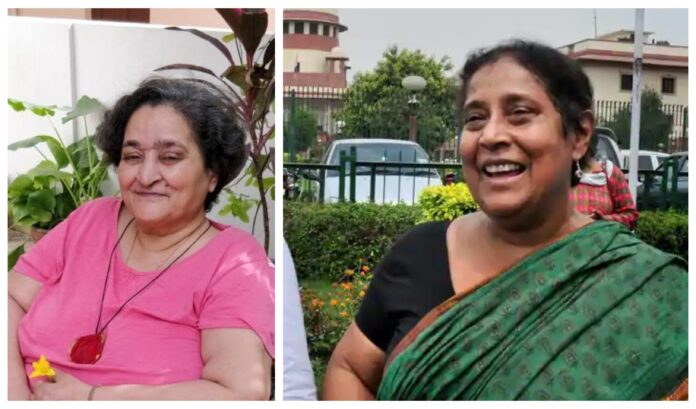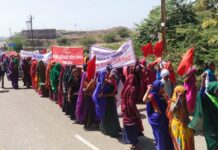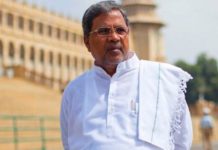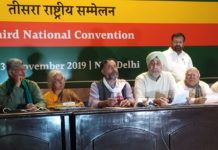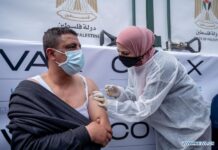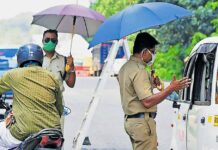On the 17th and 18th of September, 2020, Pinjra Tod, a Delhi based organization of women students, organised a two-day public discussion on the legacy of Kalpana Mehta and Ilina Sen. The discussion sought to bring together a reflective conversation on the development and lessons of the contemporary women’ movement through looking at the lives and times of Kalpana Mehta and Ilina Sen, both of whom we lost to the movement in the past few months. Joining the conversation were women activists from various walks of life whose journeys touched and wove into the life and works of Kalpana Mehta and Ilina Sen, as were young women students and activists seeking to understand this history with a view to addressing challenges before the women’s movement today.
The first discussion was led by Ranjana Padhi and Laxmi Moorthy. The second day’s panelists included Aparajita Sen, Gabriel Dietrich, and Sadhna Arya.

Laxmi began the discussions by presenting a series of posters from different organisations archived by Zubaan, depicting the struggles of feminists and women’s organizations across the country. Through these posters, she recounted the history of the autonomous women’s movement of the 70s and 80s, a time when multiple women’s organisations began rising to prominence and campaigned against sexual violence, dowry, price rise, amniocentesis (enabling sex-selective abortions), population control, communal violence, women’s work and various issues, some inviting significant mobilizations of women in urban centers. The presentation also delved into various points of criticism of the movement and how these limitations were also reflected in the posters, such as the predominant representation of women as Hindu goddesses and how this led to the marginalisation of certain communities within the movement, and the lessons to be drawn from these experiences.
Laxmi also shared various aspects of Kalpana’s work. Besides her sustained contribution through Saheli, Laxmi discussed her work against the privatisation of health care and raising consciousness about women’s bodies. She recollected how the language of healthcare was made available to the masses, especially women from working-class backgrounds through plays, posters, and paintings at melas and other public events. She also spoke of Kalpana’s involvement with religion and personal laws, and her activism in the wake of the demolition of the Babri Masjid. Through this, a critical discussion of the movement’s engagement with organized religion, the Uniform Civil Code and the challenges thrown up with the rise of the right wing was opened up.
Ranjana Padhi spoke of both Kalpana and Ilina’s work, and its relationship to workers and people’s movements. She recounted the work of the Chhattisgarh Mukti Morcha, and Ilina’s association with the same, as well as her later efforts in the civil liberties movement. She emphasised how Ilina realised the need for core feminist principles to inform the working-class movement and her argument that unionisation around women’s issues is as important as that around working-class issues. She emphasized the role of the National Conferences in building collective action and bringing together different women’s organisations, clarifying both similarities and differences between them. She recounted the space for discussions, debates, and differing opinions within the movement while also looking at the points where positions developed through active struggles within, such as initially on issues raised by the LGBTQ community. Ranjana also electrified the air with songs from the movement, one in particular written by Kalpana.
We then had Gabriele Dietrich, Aparijita Sen and Sadhna Arya speaking. Gabriele, a close friend and companion of Ilina, spoke of Ilina’s dream to realise a socialist society and how that informed her politics against the narrative of population growth that looked towards coerced sterilisation or abortions. She realised that the population is the product of a lack of access to security, and these problems could be eradicated once a just society is ensured. Gabriele then talked herself about the issue of population growth and how it must be viewed through the angle of rising communalism in the country and its threat against minorities to reduce their population and simultaneously increase the population of the majority by breeding fear sentiments. She talked of the tensions between religions and the women’s movement, an intersection that needs to be critically looked at.
Next Aparijita, Ilina’s daughter, spoke of her mother’s feminist consciousness and how she always viewed feminism through the lens of the workers’ struggle. She spoke of her work at Rupantar and how it evolved to be a resource centre and a collective, with its own school, public health centre and initiatives to conserve viable seed practices. She set up the curriculum in the school herself and stressed on the importance of children understanding their own history. The school had no classrooms and was based on free interactions and critical pedagogy, which was strongly opposed by the state. She worked to educate locals to detect early signs of malaria and other diseases, and worked with the Shramik Hospital alongside her husband, Binayak Sen. She shared anecdotes about Ilina’s politics of deep respect for working people’s culture, language. customs and festivals.
As the final speaker, Sadhna Arya presented an incisive overview of the evolution of the women’s movement including both autonomous groups and the left; analysing different issues along the way and tying up loose ends in the discussions. She discussed the changing meaning of autonomy, and the cross cutting alliances and dialogue among movements, the difficulties posed by Brahmanism, the right wing, as well as questions like funding, the individual struggles of feminists and the solidarity between them. Sadhna very succinctly put down the argument informing many of the organizational efforts of the period, i.e that women must make their struggles against the oppression they face daily, within families, at work etc a part of the overall struggle for the revolutionary transformation of society. She reflected on the limitation of the women’s movement in dealing with questions of tradition, culture and religion and concluded by pointing to three questions — of Freedom, Equality, Justice – which pose the greatest challenge to the movement today.
Activists from all parts of the country participated and refreshed memories, discussed the current state of the movement, and the challenge presented by an expanding fascist state. The two day program was concluded with people singing protest songs handed down through various movements and feeling ever so slightly more hopeful about the future.
The above summary hardly represents a fraction of the discussions and presentations. Full recordings of the discussion can be accessed here (Day 1) and here (Day 2).

















